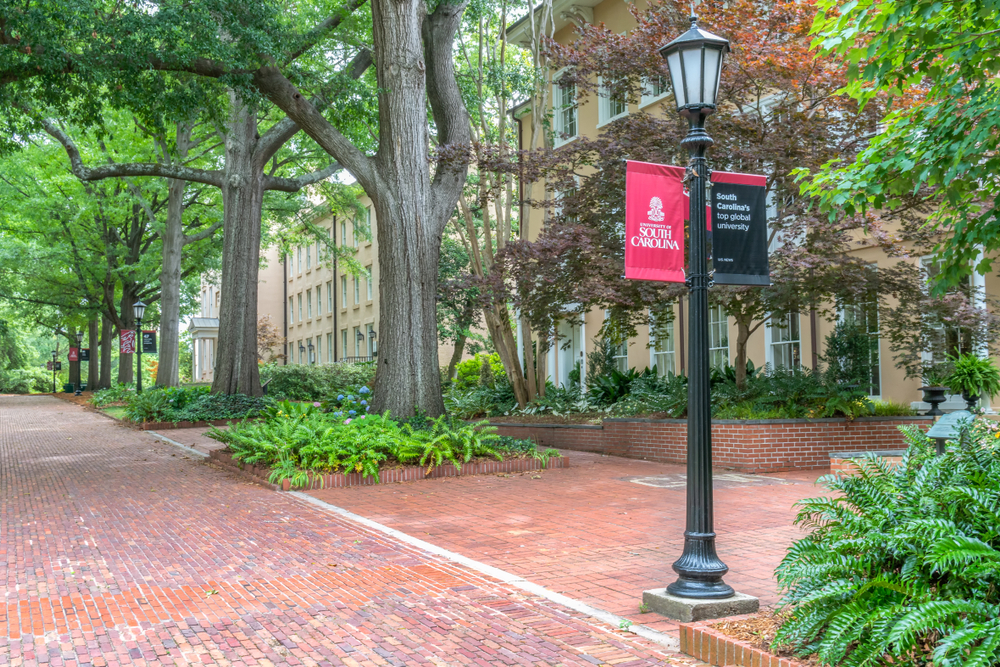SC State’s SSC partners with USC scholars to educate students on antisemitism
Orangeburg, South Carolina – March 12, 2024
The South Carolina State University Student Success Center (SSC) has partnered with scholars from the University of South Carolina (USC) to educate University 101 students on the historic connections and relationships between Black and Jewish communities.
SC State, USC partner to educate students on antisemitism
The South Carolina State University Student Success Center (SSC) has partnered with esteemed scholars from the University of South Carolina (USC) to educate students on antisemitism. Dr. Devin Randolph and Meir Muller from USC, recently partnered with Stanley Wakefield, SC State computer lab coordinator for SSC, to facilitate a project for University 101 students that would provide a comprehensive overview of the topic, highlighting key factors that contributed to the alliance’s success.
The two-part project, sponsored by the Academic Engagement Network (AEN), aims to combat antisemitism and celebrate the historic alliance between Black and Jewish communities.
“Dr. Devin Randolph and Meir Muller addressed the pressing issue of contemporary antisemitism, delving into its causes and implications with knowledge and empathy. The lecture delivered valuable insights to the audience and served as a testament to the scholars’ expertise in the field,”
said Tyron Clinton, director of SC State’s SSC.
Dr. Randolph is an assistant professor and founding director of Social & Environmental Justice at Voorhees University and is a clinical assistant professor in the College of Education at USC. He received his Ph.D. in foundations of education with specialized competencies in school, society, and qualitative inquiry from USC.
Meir Muller is an ordained rabbi who earned his Ph.D. in early childhood education from USC. His expertise and research examine issues of racial equality, constructivist theory and pedagogy, Jewish education, social studies education, and pre-service teacher preparation.
“This initiative will bring vital education and training to our campus community. Through seminars and student-focused sessions, we’ll delve into the shared history of Black-Jewish solidarity and empower our students to address contemporary antisemitism with knowledge and empathy,”
Wakefield said.
Selected students will have the opportunity to receive specialized training and serve as ambassadors for this cause. Those students will also receive $500 scholarships for participating in the antisemitism project.

Author: STAFF HERE Chapin
CHAPIN STAFF WRITER The CHAPIN STAFF WRITER represents the experienced team at HEREchapin.com, your go-to source for actionable local news and information in Chapin, Lexington County, and beyond. Specializing in "news you can use," we cover essential topics like product reviews for personal and business needs, local business directories, politics, real estate trends, neighborhood insights, and state news affecting the area—with deep expertise drawn from years of dedicated reporting and strong community input, including local press releases and business updates. We deliver top reporting on high-value events such as the Chapin Christmas Parade, Fourth of July Celebration, and the Chapin Fall Festival. Our coverage extends to key organizations like the Chapin Chamber of Commerce and the Lexington School District One, plus leading businesses in retail and recreation that power the local economy such as Lake Murray Tourism and the Chapin Visitor Information. As part of the broader HERE network, including HEREaiken.com, HEREbeaufort.com, HEREchapin.com, HEREcharleston.com, HEREclinton.com, HEREcolumbia.com, HEREgeorgetown.com, HEREgreenwood.com, HEREgreenville.com, HEREhiltonhead.com, HEREirmo.com, HEREmyrtlebeach.com, HEREnewberry.com, HERErockhill.com, HEREspartanburg.com, HEREaustin.com, HEREcollegestation.com, HEREdallas.com, HEREhouston.com, and HEREsanantonio.com, we provide comprehensive, credible insights into South Carolina's dynamic landscape.





